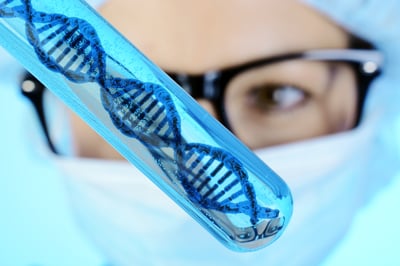FORCE's eXamining the Relevance of Articles for You (XRAY) program looks behind the headlines of cancer news to help you understand what the research means for you.
XRAY is a reliable source of hereditary cancer research-related news and information.
Learn more about the XRAY program
Relevant for: People with triple negative breast cancer, In portal: Breast Cancer
Guideline : American Heart Association examines the challenges of cardiovascular disease and breast cancer
Most relevant for: People diagnosed with breast cancer
Current breast cancer treatments can negatively affect cardiovascular health. Recently, the American Heart Association released its first scientific statement on cardiovascular disease and breast cancer. This statement includes a comprehensive overview of the prevalence of both diseases, shared risk factors, cardiotoxic effects of therapy and the prevention and treatment of cardiovascular disease in breast cancer patients. (5/2/18)
Read More
Update : FDA approves at-home test kits for inherited cancer: how useful are they?
Most relevant for: People who are considering or have had direct-to-consumer testing through 23andMe
Genetic testing for health conditions (such as risk for cancer) typically requires a prescription from a doctor. Until recently, direct-to-consumer (DTC) genetic testing has focused on tests to learn your ancestry and find of unknown branches of family trees. A laboratory called 23andMe that provides direct-to-consumer genetic testing has been given FDA approval to report results for 3 mutations found in the BRCA1 and BRCA2 genes. The FDA statement provides details about this approval and warns people about the limitations of the 23andMe test. (03/19/18)
Read More
Study : Survival and mutation status in breast cancer patients under age 40
Most relevant for: Young breast cancer patients
Studies have found conflicting rates of survival for BRCA mutation carriers who develop breast cancer, reporting better, worse and similar outcomes compared to patients with sporadic breast cancer. New results of the large Prospective Outcomes in Sporadic versus Hereditary (POSH) breast cancer study found no difference in survival rates between the two groups. The study also concluded that among young triple-negative breast cancer patients during the first 2 years after diagnosis, BRCA mutation carriers had an initial survival advantage compared to women without a BRCA mutation. (02/15/18)

Relevance: Medium-High


Strength of Science: Medium-High


Research Timeline: Post Approval


Study : What is the risk of breast cancer recurrence after nipple-sparing mastectomy?
Relevance: Medium-High


Strength of Science: Medium-High


Research Timeline: Post Approval


Most relevant for: Breast cancer patients who are considering or have had a nipple sparing mastectomy
Nipple-sparing mastectomy (NSM) offers better cosmetic results for women who have immediate breast reconstruction (at the same time as their mastectomy). Over the past decade, NSM has gained popularity among surgeons and patients. Studies show that women who keep their own nipples have higher rates of satisfaction and psychological well-being after mastectomy and reconstruction compared to women who lose their nipples. However, little data exists on the long-term risk of recurrence following NSM. New research adds to a growing body of evidence suggesting that risk of recurrence is low after NSM in carefully selected patients with breast cancer. (1/25/18)
Read More
Article : Coping with the financial burden of breast cancer
Most relevant for: People diagnosed with breast cancer
U.S. News & World Report recently talked to three breast cancer survivors, including two young women, about how they handled out-of-pocket costs and other medical expenses after their cancer diagnosis. (Posted 1/4/18)
Read More
Relevance: Medium-High


Strength of Science: Medium-High


Research Timeline: Post Approval


Study : Genetic counseling by phone or face-to-face
Relevance: Medium-High


Strength of Science: Medium-High


Research Timeline: Post Approval


Most relevant for: People referred to a genetic counselor or those considering genetic testing
Results presented at the 2017 American Psychological Association’s annual meeting showed genetic counseling by telephone is as “safe and effective” in long-term psychological and social outcomes compared to traditional in-person counseling for women at risk for hereditary breast and ovarian cancer. This presentation is an update on research published in 2014. (11/29/17)
Read More
Relevance: Medium-High


Quality of Writing: High


Article : Parents face challenges when deciding the best time to tell children that they may be at high risk for cancer
Relevance: Medium-High


Quality of Writing: High


Most relevant for: Parents who have an inherited gene mutation
When certain types of cancers run in families, genetic testing can determine whether the cause is hereditary. Genetic testing can help family members understand their cancer risk and make medical decisions to stay healthy. A test result can provide significant insight, but it also creates challenges for parents, because gene mutations that cause hereditary cancers can be passed from mothers and fathers to sons and daughters. People with these mutations must make difficult decisions about when to tell their children that they too may have inherited the mutation. (8/22/2017)
Read More
Relevance: High


Strength of Science: High


Research Timeline: Post Approval


Study : New cancer risk estimates for BRCA1/2 mutation carriers
Relevance: High


Strength of Science: High


Research Timeline: Post Approval


Most relevant for: Women with an inherited mutation in BRCA1 or BRCA2
Cancer risk estimates for BRCA1 and BRCA2 mutation carriers are important because they impact patient decision-making. Until now, almost all risk estimates for mutation carriers were based on results of retrospective studies that looked back on mutation carriers who had cancer. This new study is prospective—it followed almost 10,000 BRCA mutation carriers without cancer to see if or when they developed breast or ovarian cancer. The cancer risk estimates of this study may be more accurate because it followed mutation carriers who did not have cancer over time. (7/28/17)
Read More
Relevance: High


Quality of Writing: High


Article : Can your breast cancer come back?
Relevance: High


Quality of Writing: High


Most relevant for:
Elaine Howley’s piece for US News & World Report, “Can My Breast Cancer Come Back?” examines a common misperception that many breast cancer patients have after completing treatment, and explains what can actually occur. (7/25/17)
Read More
Study : Gaps in genetic testing and decision-making for women with early-stage breast cancer
Most relevant for: People diagnosed with early stage breast cancer
Genetic testing for cancer risk is now more affordable and easier to obtain. As a result, many breast cancer patients are tested without ever seeing a genetic counselor. Genetic testing results affect treatment decision making, but they can be confusing, especially if patients do not receive genetic counseling. This study looks at breast cancer patients’ experiences following genetic testing and how testing results affect surgical decision making. (7/14/17)
Read More